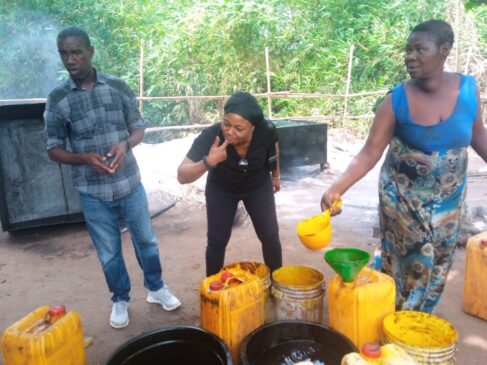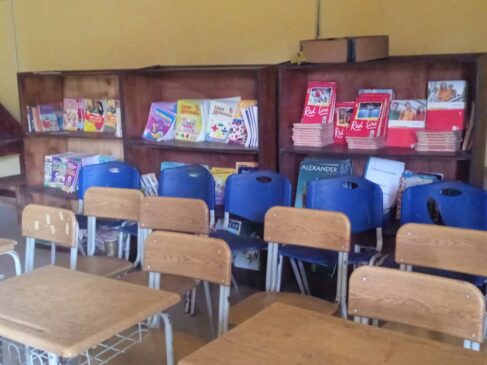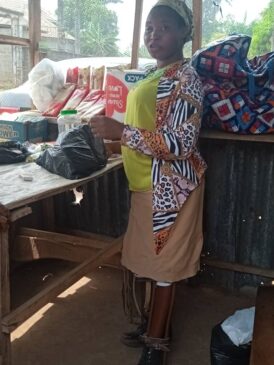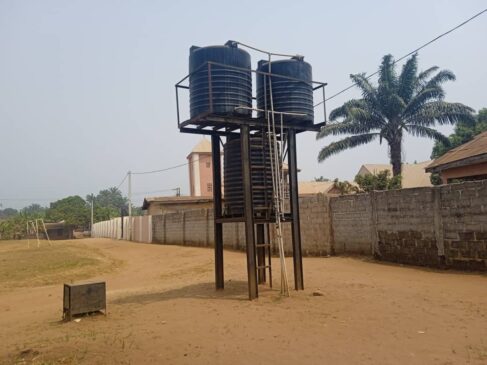By Afam Echi
The development of any society often hinges on the vision, dedication, and sacrifices of a few selfless individuals or groups who step in to address pressing challenges. In many regions, particularly in rural areas, governments are overwhelmed and unable to meet all developmental needs. In such cases, humanitarian efforts become essential. Amankuta eV, a non-governmental organization (NGO), has consistently risen to this challenge, transforming lives through its impactful projects.
Founder and Leadership
Amankuta eV was established in 1989 by Emmanuel and Brigitte Onyeali and was initially registered in Stuttgart, Germany, under the name Behinderteinhilfe Nigeria eV. It was later renamed to reflect its focus on improving the living conditions of rural communities. Following Emmanuel Onyeali’s passing in 2016, Brigitte Onyeali has continued to drive the organization’s mission, supported by dedicated team members, including Mrs. Roseline Nwagwu, who serves as the country’s representative in Nigeria.
Emmanuel Onyeali, a native of Amankuta Mbieri in Imo State, Nigeria, and a long-time resident of Germany, devoted his life to supporting his community. Through various projects, his legacy of compassion and action continues to uplift lives in his hometown and beyond.
Key Projects and Impact

1. Agro-Processing Mills
Recognizing the historical importance of agriculture, particularly palm produce, to the region’s economy, Amankuta eV established integrated agro-processing mills. These mills help local farmers optimize their yields and create value-added products.
Palm Processing: The mill processes palm oil and separates the kernel and fiber, producing three sellable outputs: palm oil, kernels, and fiber. Local women supply raw materials and benefit from the increased efficiency and profitability.
Cassava, Corn, and Beans Processing: A separate section of the mill processes staples like cassava, corn, and beans. Recently, the NGO upgraded obsolete machines, enhancing productivity for neighboring communities.
These facilities charge minimal fees, ensuring affordability while significantly improving farmers’ incomes and livelihoods.

2. Five-Room Lock-Up Stores Complex
To honor the memory of the late Frau Marianne Maerz, a dedicated board member, Amankuta eV constructed a five-room lock-up stores complex. Proceeds from the rentals are allocated to other community development initiatives, fulfilling Maerz’s final wish to continue supporting the NGO’s mission.

3. Support for the Disabled and Less Privileged
Amankuta eV demonstrates its commitment to inclusivity and compassion by supporting disabled and underprivileged individuals through material assistance and financial aid.
Case Study: Miss Ugochi Eke
Ugochi, a 27-year-old native of Amankuta, has been supported by the NGO since her early school years. Despite her physical challenges due to unexplained leg atrophy, she has excelled in academics and singing.The NGO provides her with monthly stipends, orthopedic shoes, crutches, and a shop to sustain her livelihood. Her family expressed profound gratitude for this support, calling it a major relief.
Additionally, during the COVID-19 pandemic, the NGO distributed infrared thermometers, masks, hand sanitizers, and conducted community sensitization programs to combat the virus’s spread.
4. ICT Centre
In an era driven by technology, Amankuta eV established an Information and Communication Technology (ICT) center to equip youth and pupils with essential computer skills.
The center is open to pupils from primary 4 and above, as well as other youths in the community. It has trained hundreds of individuals, enabling them to pursue careers or further education in technology.
Powered by solar energy and public electricity, the center also provides documentary and printing services, further benefiting the community.
5. Solar Power Energy
To address power challenges, the NGO installed a solar power system at the Amankuta Primary School. This facility provides electricity for the ICT center, powers a borehole for water supply, and allows community members to charge their phones and other rechargeable devices.
6. Educational Library
Understanding the transformative power of education, Amankuta eV established a library stocked with books on science, technology, arts, business, and more. Catering to both children and adults, the library fills a critical gap in educational resources often neglected by the government.

7. Borehole for Water Supply
To tackle the persistent issue of water scarcity, the NGO constructed a borehole with a large tank to supply clean water to the community. Located at the primary school, the borehole serves both pupils and residents, significantly improving access to safe water. The solar power system ensures a reliable energy source for the facility.
8. Scholarship scheme:
The NGO is also engaged in the award of scholarships to indigent students of Amankuta extraction. They recognise that education is a critical tool of development.
Conclusion
Amankuta eV has demonstrated remarkable dedication to uplifting rural communities through sustainable development initiatives. From enhancing agricultural productivity to empowering youth with ICT skills and supporting the less privileged, the NGO’s projects address critical gaps in government services.
The impact of its work is evident in the improved livelihoods, increased access to education, and better quality of life for the people of Amankuta and surrounding areas. The efforts of this humanitarian group set a powerful example of how targeted interventions can transform lives and foster development.
If other organizations replicate even a fraction of Amankuta eV’s commitment, the potential for rural development across Nigeria is immense.



